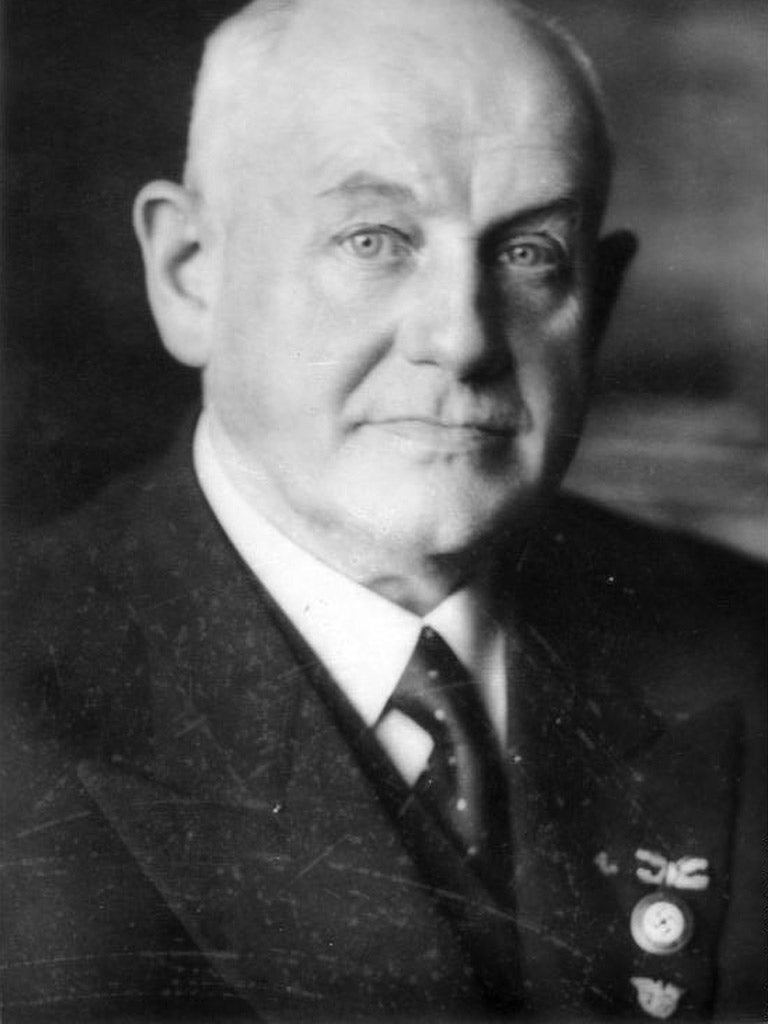BMW dynasty breaks silence on its Nazi past

Your support helps us to tell the story
From reproductive rights to climate change to Big Tech, The Independent is on the ground when the story is developing. Whether it's investigating the financials of Elon Musk's pro-Trump PAC or producing our latest documentary, 'The A Word', which shines a light on the American women fighting for reproductive rights, we know how important it is to parse out the facts from the messaging.
At such a critical moment in US history, we need reporters on the ground. Your donation allows us to keep sending journalists to speak to both sides of the story.
The Independent is trusted by Americans across the entire political spectrum. And unlike many other quality news outlets, we choose not to lock Americans out of our reporting and analysis with paywalls. We believe quality journalism should be available to everyone, paid for by those who can afford it.
Your support makes all the difference.The family that owns Germany's luxury car manufacturer BMW has ended decades of silence about its role during the Nazi era and admitted to taking over scores of Jewish businesses and using tens of thousands of slave labourers at its factories during Adolf Hitler's Third Reich.
The disturbing revelations about the Quandt dynasty, which became a major BMW shareholder in 1960, are contained in an independent 1,200-page study commissioned by the family in 2007 after its ruthless Nazi-era business practices were exposed in a German television documentary. BMW was not implicated in the report.
"The Quandts were linked inseparably with the crimes of the Nazis," Joachim Scholtyseck, the Bonn historian who compiled and researched the study, concludes at the end of his report published this week. "The family patriarch was part of the regime."
Mr Scholtyseck established that Günther Quandt and his son Herbert, who both headed the dynasty during the Third Reich, willingly collaborated with the Nazi regime by employing an estimated 50,000 forced labourers in its arms factories. An average of 80 slave labourers per month died at Quandt factories and many were executed.
"We were treated very badly, we were whipped and had to drink water out of the lavatories," recalled Takis Mylopoulos, a former slave labourer who worked at a Quandt factory in Hanover during the Second World War. The family was also found to have taken over scores of previously Jewish-owned businesses that were "Aryanised" by the Nazis.
Gabriele Quandt, Günther Quandt's grandson, responded to the study's conclusion by admitting his family had been "wrong" in trying to avoid confronting the truth about its Nazi past for so long.
The study shows that Günther Quandt joined the Nazi party in 1933, the same year that Hitler became Reich Chancellor. Four years later, he was put in charge of the Nazis' so-called "armaments economy" supplying ammunition and military hardware from factories that used thousands of slave labourers from concentration camps. An execution area for disobedient slave workers was set up at at least one of the Quandt plants.
The Quandts commissioned the study just five days after the showing of a 2007 television documentary entitled The Silence of the Quandt Family, which contained extensive details about its collaboration with the Nazis.
The family admitted in a statement at the time: "We recognise that in our history as a family of German industrialists, the years 1933 to 1945 have not been sufficiently accounted for."
Günther Quandt was arrested and interned in 1946. But judges concluded that he was a mere Nazi "fellow traveller" who played no active part in committing the crimes of the Third Reich. He was released in 1948.
Prosecutors have argued that if today's evidence had been presented at the time, Quandt would have been charged with committing war crimes or crimes against humanity. However, he joined the board of Deutsche Bank after the war and was honoured by Frankfurt University in 1951. He died on holiday in Egypt in 1954.
Join our commenting forum
Join thought-provoking conversations, follow other Independent readers and see their replies
Comments